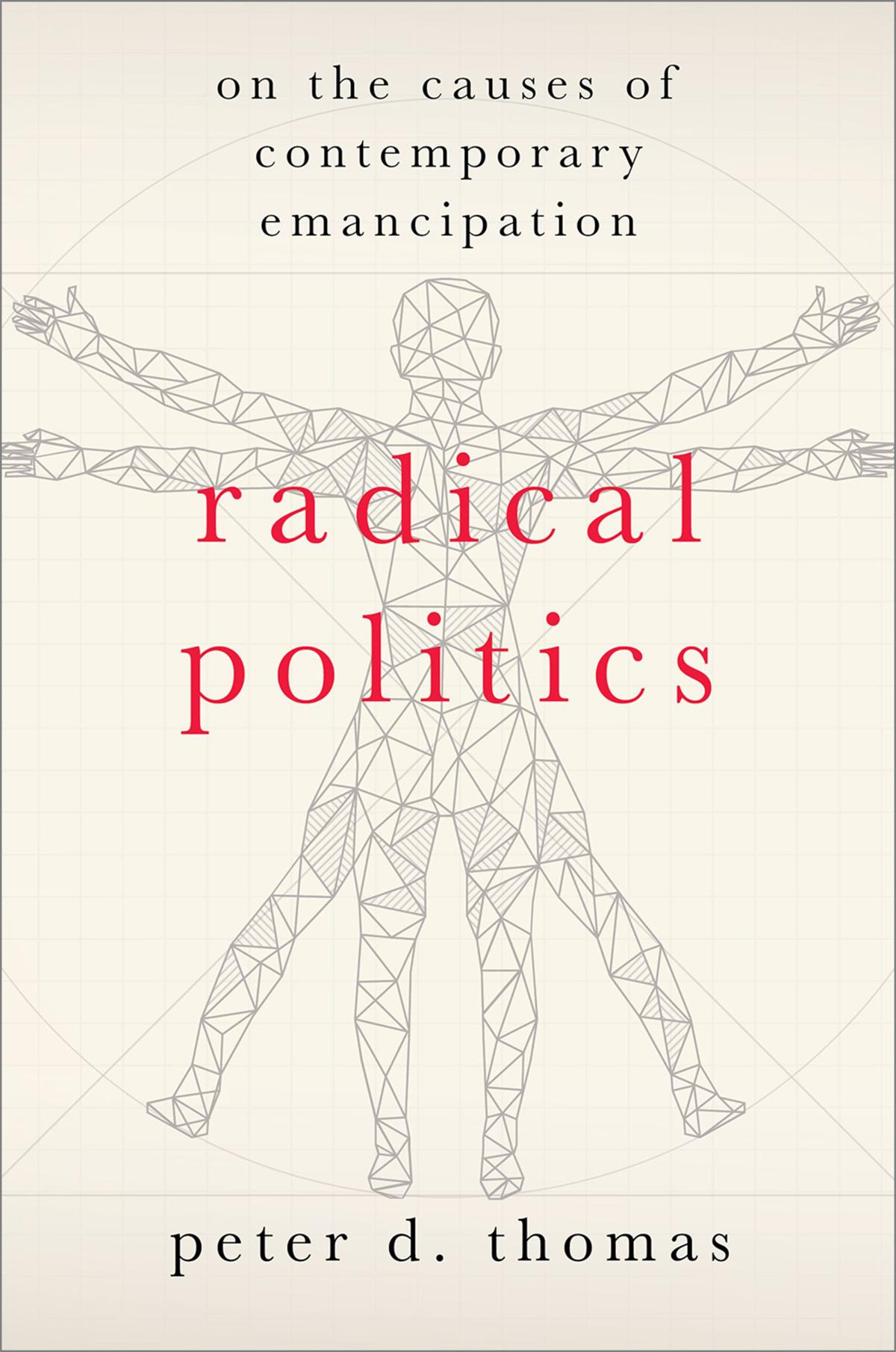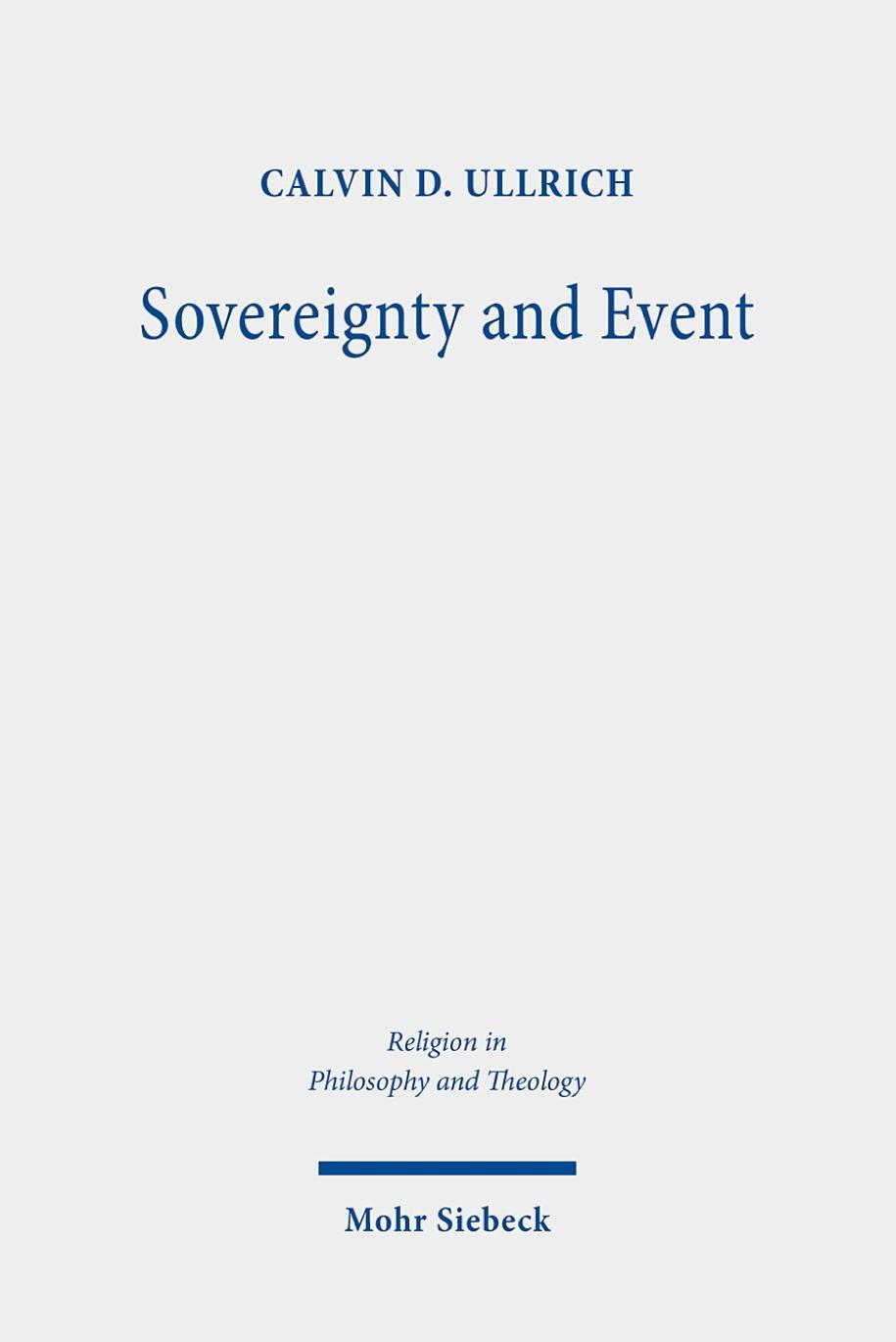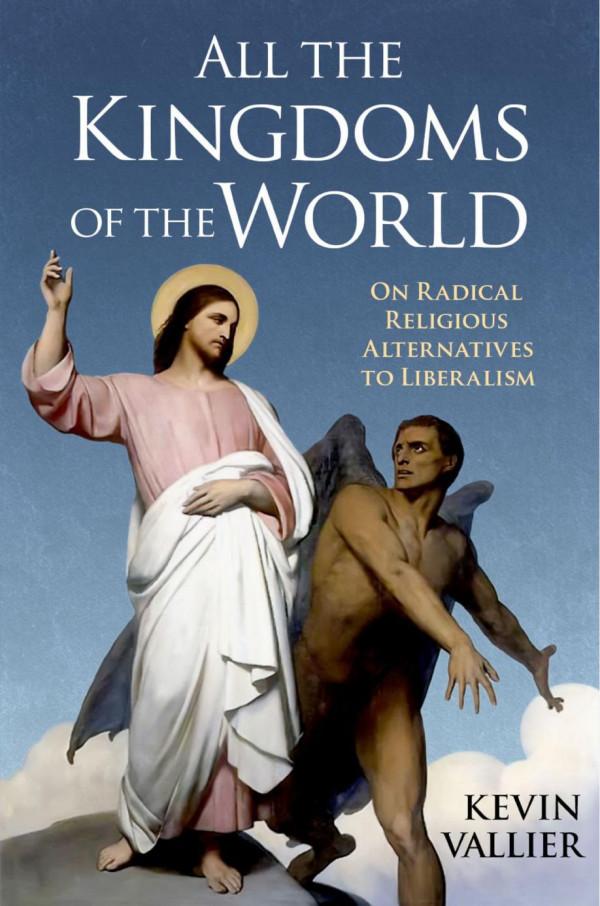Introduction
Radical Politics against the New World Order
Besides, it is not difficult to see that ours is a birth-time and a period of transition to a new era. Spirit has broken with the world it has hitherto inhabited and imagined, and is of a mind to submerge it in the past, and in the labour of its own transformation. Spirit is indeed never at rest but always engaged in moving forward.1
Hegel’s reflections in the midst of the great events that inaugurated global political modernity—a revolution against slavery, the dissolution of the feudal order, the vindication of the rights of women, among so many others—might seem to speak also to the immense political transformations of our own times. The early years of the twenty-first century have witnessed wave after wave of protests and rebellions against the “New World Order” that was proclaimed with the fall of the Soviet Bloc and the consolidation of what has become known as “neoliberalism” on a global scale. From the clarion call of the Zapatista’s uprising in the early 1990s; the alternative globalization movement straddling the turn of the new century; anti-war protests throughout its first decade; the “pink tide” of progressive governments in Latin America; revolutionary upsurges in the “Arab Spring”; anti-austerity campaigns; and the “Intersectional Sociopolitical Movements” that have defined popular responses to the latest round of capitalist crisis internationally, the depoliticization and neutralization frequently foretold or feared by the auguries of both right and left over the last 30 years have failed to appear.2
Recent decades have instead witnessed a proliferation of radical emancipatory social and political movements. They have been “radical” not in the sense of merely extreme (such as when, e.g., the term is used to characterize supposedly “radical” right-wing politics)
but in its more profound sense as a fundamental questioning of the nature and causes of the manifold experiences of injustice within the current order. “To be radical,” as Marx wrote, “is to grasp the root of the matter”; in a world such as ours that continues to be structured by generalized relations of exploitation, subjugation, and subalternization, to be radical means in the first instance to work for emancipation from all such conditions wherever they are encountered.3 It is precisely this task that the most dynamic of contemporary movements have set themselves.
Sometimes these radical emancipatory movements have been punctual and sometimes delayed, sometimes ephemeral in appearance and sometimes subterranean in effect; but their stubbornly persistent emergence and re-emergence signifies the development of new forms of conflict and struggle of the popular or subaltern social groups and classes.4 The new century seems to be characterized by a progressive accumulation of accelerated political cycles on a variety of terrains and in different geopolitical regions, as if it were only through the exhaustion of spirit in one of its incarnations that it might gather the strength to spring forth afresh elsewhere, clothed in different garbs yet cut from the same cloth.
These movements of resistance and revolt may not have issued in many unambiguous victories. Their failures may not even have been of an important type. And the significance of whatever modest successes these movements may have enjoyed in their own moments has been continually found wanting when measured against standards derived from previous and wholly different political conjunctures.
At the beginning of each upsurge of struggles, it has not been difficult to hear voices hopefully declaring the end of a long season of defeats and the opening of a new chapter in the universal history of the forward march of popular movements. Retrospect, even at a short remove, seems quickly to deflate such enthusiasms, seeing in what was yesterday’s novelty merely an eventual exception that does not disprove the continuing rule of the party of order. Indeed, in some cases, it even appears to have been strengthened,
particularly when xenophobic, racist, and nationalist mobilizations or revivals of the far right have been able to fill the vacuum left by the defeat or demobilization of emancipatory projects.
The spectacular irruption and subsequent fierce repression of revolutionary initiatives in the Arab Spring constitutes the most tragic and significant example of this negative dialectic. The brief flowering of the Occupy movement in the heart of the imperialist powers in the early years of the second decade of the century and its equally rapid “dispersion”—in both figurative and literal senses—followed something of the same pattern, albeit on a lesser scale. In a longerterm perspective, the sequential election of progressive governments in Venezuela, Brazil, and Bolivia raised hopes for the inauguration of a “socialism for the twenty-first century.” In each case, initial enthusiasms more or less gradually subsided, when they were not abandoned, as those movements and their domestic and international supporters confronted the sober realities and contradictions of governing what remained societies fundamentally structured by capitalist social relations, of socialization just as much of production.5
In a similar fashion, the hopes of the European Left have migrated over the last decades, with specific, nationally based political formations appearing to represent at least for a season—a paradigm for a more general continental recomposition of progressive forces. These exemplary instances have included Rifondazione comunista in Italy, at the height of “the movement of movements” in the early years of the century; DieLinke in Germany in the wake of the movements against the invasions of Afghanistan and Iraq at the midpoint of the first decade; the foundation of the Nouveau Partianticapitalistein France in 2009 embodying hopes for leftist recomposition that were soon dashed; SYRIZA’s revolt against the creditors in Greece before its capitulation to the Troika’s dictates in 2015; Podemos’s ongoing traversal of the contradictions of the austerity-riven and disintegrating Spanish nation state; or the enthusiasm for Jeremy Corbyn’s leadership of the Labour Party in the UK, echoing and echoed by the mobilizations around Bernie Sander’s
bids for the Presidency in the United States. Most recently, this accumulative cycle has been shadowed by a revival of the extreme right across the continent and around the globe not entirely incomparable to the dynamics of the 1930s.
We seem to live in something of an interregnum, as elements of the old tenaciously hold back the emergence of the new, as hopes are raised and just as soon dashed, hanged on the expectation of plenty. As Antonio Gramsci noted in a very different period, with a formulation that seemed to become ubiquitous since the global financial crisis in 2007–2008, “the crisis consists precisely in the fact that the old is dying and the new cannot be born; in this interregnum a great variety of morbid symptoms appear.”6 Yet whatever strange beasts slouch toward Bethlehem today, and however much reactionary currents seem to have grown in strength in recent years in particular national contexts, at least one thing seems to be clear when considering the global situation over the longer, extended generational period that runs from the 1990s until today: something fundamental has shifted in the exhausted structures of feeling and response that were dominated by the experience of defeats for emancipatory politics in the final phases of the twentieth century.
The type of “left melancholia” that corralled critical political energies for more than a generation no longer exerts the same mesmerizing fascination that dominated so many leftist responses from the 1980s onward.7 For those who have been active in the movements and mobilizations of the nascent oppositional political cultures of the last decades, such an orientation can only seem strangely dated, if not even narcissistic. From these younger standpoints, the horizons of the present no longer appear as pale reflections of the past or menacing shadows of its traumatic repetition, but are populated by figures of the new, and of the unexpected.
This novelty derives in the first instance from changed conditions of contemporary politics, characterized by a unique conjugation of crises on multiple fronts: expansive capitalist globalization in a
unipolar world accompanied by increasing imperialist interventionism around the globe, accelerating environmental catastrophes on an apocalyptic scale coinciding with the pulverization of autonomous institutions of popular industrial and political organization, the redefinition of the sites of injustice and its contestation occurring alongside technological reconfigurations of social space and time. But the distinctiveness of this period also owes something to the way in which contemporary movements have confronted its challenges as discrete instances of protest, nevertheless in some way linked together in their revolt against everything that is “the contemporary” itself. Albeit unevenly, failing and recommencing in turn, frustratingly patient in their broken rhythms, our times are marked by a revival of popular struggles and new political practices on a scale not witnessed since the “long 1960s.” Piece by piece, the new world order seems to be dissolving before our eyes. A new product of spirit, Hegel might have said, is being prepared.8
Contemporary Emancipatory Politics
It is not surprising that the punctual tempo of recent political movements and their cycles has given rise to more provisional and strategic forms of thought than the type of melancholic brooding over epochal transformations that so entranced an earlier generation. How is this particular movement to be built, in the here and now? What are the social groups and actors most likely to become involved in this initiative? How can they be encouraged to move from passive support to active participation in the movement’s development? These are questions that, in the simplicity of their formulation and their orientation to the resolution of particular problems, are both more particular than any periodizing narrative but also more general than any temporal distinction. It is almost as if these movements, in their commonalities and in their differences, have been searching for responses to the questions posed by the conjunctures themselves, questions simultaneously generic in their import yet specific in each of their modes of formulation.
It has been the repetition of these questions, different in their sameness, which has been the most striking continuity across the specificities of each discrete political cycle. It is almost as if, unsatisfied, these questions demand to be revisited, reformulated and reposed in each new moment. The emergence of every wave of protest and resistance over the last 25 years has posed the problem of attempting to “translate” experiences and insights from immediately preceding cycles, not simply or even primarily in terms of their responses but perhaps even more in terms of their modes of posing these questions. It is a dialectic of simplification and clarification that descends down—or ascends up—toward the “basic problems” of political action, grasped in the specific formulations of the contemporary conjuncture.
At least four such questions have been repeatedly posed in distinct but related forms by the movements of the last 25 years. These four questions focus on the goal, nature, method, and organizational forms of political action. I propose to consider the articulation of these questions as a potential “aitiology of contemporary emancipation.”
Aitiology is today perhaps most commonly associated with a medical vocabulary, a sounding of the depths that correspond to the surface symptoms identified by its twin science of pathology. Other readers may recall its usage in Freud’s early attempt to delineate a foundational method for what would only later become psychoanalysis.9 In this book, it is instead intended as one of its original Greek and above all Aristotelian meanings: that is, an account of the final, material, efficient, and formal “causes” [aitíai] of radical political engagement.10
It is true that a notion of causation derived from a thinker who infamously justified slavery as both natural and necessary may not seem, at first sight, to be the most promising way to focus on the challenges of contemporary emancipation. The great strength of the Aristotelian tradition, however, is that it enables us to avoid the reductions of those modern notions of cause (frequently inspired by David Hume’s approach) that consider it in a restrictive sense as an
The four questions of such an aitiology of contemporary emancipation can be formulated in a condensed fashion in the following ways:
•
•
•
First, in terms of emancipatory politics’ “final” cause, or the end that it seeks to achieve, what is the terrain on which emancipatory political activity today should concentrate its efforts? Should the seizure of state power still constitute the immediate or even ultimate goal of political action, or has the centrality of “traditional” state power been superseded or displaced by the emergence of other rationalities or regions of (political, social, ethical . . .) power and its contestation?
Second, regarding the “material” cause of emancipatory politics, or the stuff of which it is made, what constitutes the distinctive nature of emancipatory politics? Can it be conceived as the sublation, completion, or inheritor of political modernity, or is it properly understood as oppositional and antagonistic to all forms of political order hitherto?
Third, in terms of emancipatory politics’ “efficient” cause, or the way in which it is done, what methods of “political work” might help emancipatory political movements to be built? Are these methods to be derived from known models of political action, or do the goals of these movements necessitate a different way of conceiving how politics itself might be done?
• “origin” of a (potential) effect, with the various intentionalist or even subjectivist deviations that follow from this premise. The more expansive notion of an aitiology—a study of a thing’s “causes,” or the modes of explaining its constitution—offers us a more differentiated sense of all those features that can help us to explain why and how something has come to be that which it is: or even more importantly, why and how it might have the potential to become something else.
And fourth and finally, as the “formal” cause of emancipatory politics, or that which gives it its distinctive shape, what are the forms of organization most likely to deepen and extend the dynamics that led to the emergence of these movements of resistance and rebellion in the first place? Can a form of the political party still be enabling, or would contemporary political activity be better comprehended, theoretically and practically, in terms of other forms of organization, association, and relationality?
Translating Gramsci
This book explores the ways in which the implicit and explicit responses of the political movements of the twenty-first century to these four questions might be brought into productive dialogue with the thought of Antonio Gramsci and the various conflicting interpretative traditions that have grown up around it. It is admittedly not immediately obvious why a reference to a figure from the past, however interesting on their own terms, may be the most useful way to pose these questions. If we wish to clarify the conditions and potentials of contemporary emancipatory movements, would it not make more sense to begin instead directly from the debates that are actually happening today? Doesn’t such a “return” to a known thinker risk becoming yet another flight from the contradictions of the present rather than an attempt to resolve them in the active construction of a different future?
Yet a historically significant figure such as Gramsci has a claim on our attention today for a variety of reasons, each of them compelling in its own way and none of them exhaustive on its own of his multifaceted contemporaneity. Gramsci appeals to readers today, for instance, due to his undoubted historical importance as one of the most sophisticated theoretical expressions to have emerged from the plurality of experiences, struggles, and discourses often too rapidly condensed into the myth of a unitary or purportedly “classical” Marxism and its supposedly Western aftermath. Similarly, while not as clearly “canonical” as his near contemporaries Max Weber or Carl Schmitt (at least for some influential currents of academic discussion), Gramsci is undoubtedly today ranked among the major political thinkers of the twentieth century. The fact that the most recent philological and historical studies have substantially increased our knowledge of his thought, revealing previously unnoted sources, structures, and implications, suggests that revisiting the Prison Notebooks today could prove to be generative of new insights and perspectives not only for the history of political thought but also for contemporary emancipatory politics.11
Gramsci’s continuing significance is due not only to his formative influence on the political culture of the New Left, particularly in the 1960s and 1970s, and many of its later derivations and afterlives, including cultural studies, postcolonial theory, and subaltern studies. Equally, the ongoing diffusion of some of the key themes and concepts of the Prison Notebooks—above all, that of hegemony— across almost all humanistic and social-scientific academic disciplines, and a global prominence in all the major linguisticcultural zones of theoretical debate, is not the only reason that he might be regarded as an unavoidable point of reference. Finally, it is not only because Gramsci’s thought has constituted an important reference for some of the most dynamic political movements and formations of our time, from Venezuela to Bolivia, from Greece to Spain, that he might be thought a fitting interlocutor for an attempt to reflect on the theoretical and practical challenges that those movements have posed.
The argument of this book is both more general and more specific. In terms of the former, I wish to demonstrate that a reading of some of the central themes associated with Gramsci’s thought and the debates that have shaped its reception can provide us with clarifying critical perspectives on these four central questions regarding the distinctive goals, nature, method, and organizational forms of emancipatory politics. There are immediate historical reasons why a thinker such as Gramsci is particularly well placed to help us to respond to questions of this nature. For whatever his various afterlives and the truncated political, national, and disciplinary receptions to which his writings have been subjected, Gramsci was above all else a political practitioner and professional revolutionary directly engaged in seeking answers to similar questions in the movements of his own time. All of his writings both before and after his imprisonment remained inextricably tied to this context.
The extensive reflections on seemingly “other” forms of social life that define the encyclopedic nature of the Prison Notebooks— literature, culture, history, philosophy, sociology, anthropology, and folklore, among many others—were not subordinated to this primacy
of politics but enabled by it. As historical documents, the distinctive answers that Gramsci provided to the questions posed by the worldhistorical events in his own period undoubtedly continue to have a cardinal importance in the record of revolutionary movements in the twentieth century. It is only in this optic that any true measure can be taken of the nature of Gramsci’s achievements in his own historical context.
Yet in the PrisonNotebooks, Gramsci aimed to produce a political theory that could not only explain the determining features of his particular historical moment, one marked by the involution of a revolutionary upsurge and the rise of extreme forms of fascist reaction. He also sought to comprehend the deeper historical processes that had produced and were condensed in that distinctive moment. By so doing he formulated not a philosophia politica perennis, at the heights of universalist abstraction, nor simply a description of the conditions that obtained in Italy and Europe in the interwar years, in a modestly nominalist fashion. Rather, he produced what can be regarded—using his own terms—as a “translatable” theory of the possibilities of emancipatory political action in societies dominated by the capitalist mode of production and structured as processes of subalternization.12
The translatability of the political theory of the Prison Notebooks derives not from its presentation of an ensemble of generic concepts, immediately good for all seasons. Their translation must be actively attempted, based in the first instance on their potential for meaningful reformulation in the vocabularies of the present. The intensity of Gramsci’s immersion in the particular concrete conditions of his own time enabled him to outline a singular critical perspective on political modernity as processes of “subalternization” and their contestation. Part of the reason that so many different political and national conjunctures over the last 70 years have repeatedly thought to find in Gramsci a “guide to action” may be because such subalternization remains the “destiny” against which emancipatory politics constitutively and necessarily struggles. One dimension of this book will therefore explore the extent to which such a critical
perspective on subalternization drawn from Gramsci’s carceral research might be translated once again today in order to clarify some of the central debates of contemporary emancipatory politics.
The “Strategic Method” of Hegemony
The fundamental argument of this book, however, is that there is also a more specific reason why Gramsci might be productively translated in relation to the questions that have emerged within contemporary movements. As Walter Benjamin argued, translatability never simply inheres in an original text but is always a relation that is produced in the work of translation itself, in its distinctive combination of retrospection and projection.13 In this sense, it is less a question of translating Gramsci intothe present in order to enlighten it than of being attentive to what might emerge when Gramsci is translated by the present that is, of how the concerns of the present might illuminate previously obscured radical potentials that were neglected by the now canonical interpretations of his thought elaborated in previous political cultures.
This book therefore not only aims to propose a certain type of “Gramscian” analysis of radical emancipatory politics today. Rather, the central debates of our contemporary intersectional sociopolitical movements also here provide an optic with which we can attempt to read Gramsci in new ways. In their turn, these new readings are then proposed as a potential basis for distinctive responses to the four questions of an aitiology of contemporary emancipation. In this perspective, much more important than any of Gramsci’s specific concepts or analyses is thus the general approach with which he confronted the challenges of his own time. It is this “strategic method” that is here proposed as an example of an enabling way to respond to the questions dominating our own conjuncture.
In a defeat much deeper than any our own times have known (because the intensity of defeat is always measured in relation to the frustration of a future that had been anticipated), Gramsci did not passively suffer the terms in which his conjuncture posed its short-
sighted questions to him and to his contemporaries: to choose between an adventurist impatience or the sobriety of an Olympian distance, between the opportunism of too immediate tactics or the compromises of disembodied long-term strategy. Whichever alternative was accepted, the result was the same: to subordinate emancipatory politics to the rhythms and priorities of the dominant order and its theoretical comprehension rather than subjecting them to a fundamental theoretical and practical critique.
Gramsci’s response was instead to beg those questions and to refuse their false choices. Rather than being dominated by the demands of his conjuncture, he actively confronted it with his own set of interrogatives. These questions were articulated in a strategic perspective, focused on the resolution of concrete organizational challenges and grounded in an understanding of the selfemancipation of the subaltern social classes as the project of constructing the future out of the incoherence and contradictions of the present. Each problem that Gramsci confronted was considered in this open-ended futural perspective and not subordinated to the periodizing and organizing imperatives of an existing order wedded to the repetition of its own past.
The questions that the Prison Notebooks posed to their conjuncture aimed to clarify the concrete possibilities for emancipatory political action in the specific conditions of that moment; but the strategic method by which they did so, in its assumption and construction of the self-emancipation of the subaltern social classes as the process of their “autonomization” from the existing sociopolitical order, constitutes a methodological discovery of a potentially more general validity. This strategic method can be characterized as a categorical imperative continually to “translate” the challenges of a given conjuncture into the terms of the organizational forms and practices that represent their real critique and resolution.
This categorical imperative was concretized in a distinctive, strategically focused understanding of “hegemony” as a process of “de-subalternization.” It is a perspective developed already in Gramsci’s political activism prior to imprisonment and further
elaborated in the Prison Notebooks as a “method of political work.” This strategically focused understanding of hegemony should be rigorously distinguished from the ways in which the term is usually understood today in radical political thought (to say nothing of the word’s conventional geopolitical usage in mainstream international relations theory and journalistic commentary). More often generically invoked rather than precisely defined, hegemony has frequently been understood in two interrelated senses.
On the one hand, it has been presented as an analytic concept that describes the functioning of modern political systems founded on the formation of “consent,” conceived either tacitly, as effective passivity, or actively, as the ‘occupation’ of the interiority of a “subject” by impulses and dispositions originating outside it. In this case, hegemony is understood as a theory of the intersubjective foundations of domination.
On the other hand, hegemony has also been posited as a sophisticated historical account of the emergence of the modern state and the forms of neutralization, integration, and legitimation on which it depends. In this case, hegemony is effectively presented as a leftist variant of, or alternative to, the modern theory of sovereignty.
Variously weighted articulations of these dimensions are strongly present in the most influential understandings of hegemony in radical political thought today, derived from readings and uses proposed 40 years ago by figures such as Stuart Hall, Ranajit Guha, Giovanni Arrighi, and perhaps above all Ernesto Laclau and Chantal Mouffe with their notion of the hegemonic articulation of chains of equivalence and the formation of a “collective will,” conceived as a “political subject.”14 Ultimately, this understanding of hegemony represents a delicate synthesis of the two great modern theorists of political form, Rousseau and Hobbes, integrating the former’s emphasis on the immediacy of unity (in the rapid transition from the “will of all” to the “general will” necessary to prevent the emergence of seditious factions) with the latter’s decisionistic act of transcendental ordering (in the foundational and exhaustive status of
One of the arguments proposed in this book is that hegemony, at least in Gramsci’s most significant and strategically focused formulations, contains a very different political logic—and a way of thinking much closer to what we need to confront the challenges of our movements today. Hegemony here is understood not as an abstract theory of a consent-based social system or a generic notion of state power. It is not, that is, a general model of politics, to be applied ready-made to particular cases. Rather, a strategic understanding of hegemony views it as simultaneously the goal, nature, method, and form of self-emancipatory politics.
•
Goal: To engage in hegemonic politics means to construct the novel relations of force and institutional forms capable of representing a viable alternative to the hierarchies and exclusions of the existing state of affairs; it means, that is, unashamedly to engage in the construction of a “new order.”
Nature: Such a practice of hegemonic politics implies a conception of historical progress understood as a concrete process, that is, not as the implementation of a normative standard but as the valorization of the critical acts immanent to the contradictions that define existing sociopolitical relations.
Method: Hegemony understood in this sense is a practice of political leadership conceived not as an instance of command but as a process of experimentation with political proposals and programs that aim to increase the subaltern social classes’ capacity to act as an autonomous political force, within but against the current order.
• the instituted sovereign). Hegemony, that is, is presumed to be a theory of unity, universalization, and—ultimately—of political order.
Form: The organizational elaboration of this strategic method of political work represents something akin to a “pedagogical laboratory” for collectively unlearning the habits of subalternity and discovering new forms of conviviality, mutuality, and collective self-determination.
In its fullest sense, this strategic understanding of hegemony can be comprehended as an open-ended constituent process that aims to construct a future, autonomous new order within and by means of the forms of struggle in the present. Hegemony as a strategic method of political work, in short, signifies the revolutionary project of the always ongoing self-emancipation of the subaltern social
groups and classes: a constitutive path rather than definitive destination.
It is in this perspective that Gramsci will appear in the pages of this book, that is, as the practitioner of this distinctive strategic method of the autonomization of self-emancipatory politics embodied in the practice of hegemony. Gramsci the historical figure may appear to us today as a type of Machiavellian “exemplar,” providing us with general lessons derived from his particular case about the nature of the political forms that secure and consolidate the ongoing dominance of the capitalist mode of production. Considering Gramsci instead as a “strategic methodologist,” on the other hand, might be able to teach us a more specific lesson: namely, how to break with the self-defeating structures of feeling and response that remain subaltern to the demands of our age, and to begin the construction of the unprecedented and the new. The urgency of this lesson cannot be overemphasized; for it has been precisely such a failure to refuse the terms of the conjuncture’s own self-comprehension that has for so long deformed emancipatory politics.
A “Weberian Tone”
The dialogue with Gramsci proposed in this book thus functions in the first instance as a critical rejection of the pessimistic and melancholic strains wafting in from the recent past that sound so discordant among the cacophonous melodies of contemporary movements. It would indeed be difficult to imagine an orientation more unsuited to comprehending the challenges and questions of our conjuncture than what could be characterized as the “Weberian tone” that dominated much political and theoretical discussion in the final decades of the twentieth century. Taking aim against “mystagogues” engaged in “fanaticism” [Schwärmerei], Kant famously satirized an “overlordly” or “superior” [vornehmen] “tone” that could be heard on the philosophical Kampfplatz of the Enlightenment. It was, according to Kant, not simply a discordant
tone but a way of speaking that frustrated itself; this “new tone in philosophy,” while declaring its inspired and easy access to philosophy’s goals, in effect resulted in dispensing with philosophy as such, signaling not its ennoblement but its end.15
A tone similar in pitch if not in timbre can be found at work in the way Max Weber attempted to confront the transformations wrought by capitalist modernity in late nineteenth-century Germany as he sought to secure the ideological conditions of the dominance of the bourgeois class to which he continually declared he proudly belonged.16 Weber’s tone fluctuated between über-aristocratic bravura and a despairing sigh. Modernity’s inexorable decline into bureaucratic mediocrity could only be held in check, he opined, through some extraordinary moment of charismatic political leadership. Yet the further back Weber frantically searched through history for exemplary instances of such saving power, the more it seemed to him that the historical roots of rationalization struck so deep as to be well-nigh fate. In his famous metaphor, an “iron cage,” an encasing as hard as steel [stahlhartesGehäuse], closed in around political modernity as something inevitable and unavoidable, something against which we moderns might struggle, but that which would thereby merely be affirmed in its increasing substantiality as our inexorable destiny.17
The “Weberian tone” of our more recent findesièclebegan with a similar “dying fall,” acting out its own particular “ends.” One of the responses to the decline of the social and political struggles that had marked the experience of the New Left, beginning in the 1970s but accelerating throughout the 1980s and 1990s, was the declaration that something was coming to an end, if it had not already passed— but what? Was it merely a mythical “Fordist” phase of the capitalist mode of production that was thought to be over? If it was not merely literary and artistic modernism that had come to an end, perhaps it was modernity as such? Later it would be claimed that not even history itself had been spared from its completion. The multiplication of philosophies of the “post” in the ensuing decades only seemed to take for granted precisely that which might be
thought to be in need of explanation: namely, how could that fallen time that we Nachgeborene (those following in the wake) had been so lucky to escape really be so radically different from our own present, when we still seemed to need to look to it as if it were our own mirror?
Nevertheless, as if mere repetition on its own had the force of innovation, claims regarding the unprecedented novelty of the present continued to proliferate. So-called new social movements rose up, new political actors stepped onto center stage, and politics itself seemed to have found a new relation to “Life.” Each of these claims was premised on a constant reference to what was taken to be the “past,” constructed as everything that the present was not or should not be. For this perspective, novelty was thus not ultimately conceived as the “really new” but instead as the mere exhaustion of the past. It was a teleological narrative that sought to comfort the present, that although it thought itself to be unprecedented, its coming had nevertheless been foretold. Among the frantic and ironically derivative attempts to “make it new” of the 1980s and 1990s there thus lurked a profound “anxiety of actuality,” as if one could only become truly “of the present” by loudly asserting one’s contemporaneity.
The most striking example of this performative contradiction was the moment of so-called post-Marxism, living in the empty time of a break with a past that remained uncertain of a future. As a discursive formation and strategy, what became known, not unproblematically, as post-Marxism was characterized by the curious fact that it could neither entirely dispense with “historically existing” Marxism, but nor could it tolerate it either. It needed repeatedly to “reactivate” the “sedimentation” of the Marxism to which it constitutively referred.18 In order to affirm its own novelty, postMarxism continually recalled its illustrious ancestor, eulogizing it, condemning it, relativizing it, absolutizing it—in short, mourning it, but in a perversely melancholic way.
Marxism was here constrained to assume the function of a temporal index against which the contemporaneity of post-Marxism
would seemingly become spontaneously apparent. It this sense, post-Marxism shared with all philosophies of" “the post” the fact that it constitutively arrived both too late and too early: too late to resurrect the objects of its obsessions but too early to have found a new attachment that would efface the memories of loves lost. It was a parasitic and narcissistic relationship, in a strict sense: a present that could only relate to itself, or be present to itself, by repeatedly distinguishing itself from the past it anxiously claimed not to be. Rather than an enabling orientation to the new, what these constructions of the post offered was often only this obsessive relation to a past they could no longer change but merely ceaselessly replay. The new became a mere variation of the old, verified in its simulation of novelty by the distance it proposed to take from that which came before.
Freud’s understanding of the paradoxically active passivity of endless melancholy, rather than the terminable work of mourning, is the metaphor best suited to capture this structure of feeling.19 Just as melancholy remains linked to the lost object, as its afterlife, or as the form in which an object is forced to live beyond itself, so some of the most significant discursive formations of the 1980s and 1990s remained linked to a cycle of real and perceived defeats of the previous conjuncture of the New Left. They summoned them up again and again in order to exorcise them, thinking that the full presence of the present would thereby be assured. But by so doing, they merely tended to confirm the continuing presence of the past, leaving the present anxious before those forms with which it supposedly needed to break in order to become itself. In its own way, such an always uncertain present soon became an iron cage just as suffocating as anything imagined by Weber in his darkest moments.
From Zeitdiagnose to Militant Nostalgia
The “post” generations of the 1980s and 1990s were dominated by the type of Zeitdiagnose (diagnosis of the contemporary) that
aspires to provide an almost clinically detached reading of the pathologies of the present. Such maudlin tales of a lamentable decline or resentful reconciliation with the existing order, however, are narratives unlikely to have much to say to many of those active in radical politics today, particularly to younger generations either unencumbered by expectations of defeat or happily oblivious to their postlapsarian state. The energies of movements over the last 20 years have in fact shown themselves to be rather reluctant to engage in such “epic” or even tragic modes of self-comprehension. Our age seems to demand different tones and different orientations in thought.
The melancholic attachments that still flare up today with each ebb in the tide of movements seem increasingly minoritarian, if not instances of generationally determined territorialization and capture; they suffice to produce a self-satisfied commentary at the end of one cycle, but don’t offer any propulsive force for the projection of the next. Not even enthusiastic negations of such dystopias, with frantic flights toward utopian futures, seem capable of constituting an enduring pole of attraction for the accelerations and recompositions that have characterized the cycle of political movements in the early twenty-first century. Just as historicist and teleological as the melancholic orientations that they claim to oppose, they also share a fundamentally speculative relation to the present, as if it could only be grasped at a distance, narrativized into a past or a future that are equally far away from the concrete challenges that contemporary movements have been attempting to confront.
Rather than narratives tracing out the conditions of possibility of our current misery, it has instead been a thinking of the specificity of the present that has generated more excitement in recent political movements. This is not to deny that theories of the new, of periodization, or even full-blown philosophies of history continue to constitute an important tendency in wider forms of political, social, and cultural critique. Structures of feeling formative for entire generations rarely disappear overnight but are only worked through and metabolized into new formations and orientations slowly, in
relations of generational inheritance and disavowal.20 Yet it is not this type of theoretical perspective that, on the whole and in general, has been adopted as a mode of self-understanding within the movements themselves.
It has instead been the prospect of some type of viable “grammar” of contemporary political mobilizations that has animated the most creative theoretical projects, even when they have remained invested in the rhetoric of periodization and notions of the new. It is less a case of describing the present in terms of a Zeitdiagnose, that is, than it is a matter of attempting to comprehend the present in terms closer to a Machiavellian occasione, as an opportunity for an intervention that could open the present to the future.
But how can the tasks of the present be comprehended if not in the optic of the new that defines itself through disavowal of the old? Are we forced to declare a type of decisionistic tabula rasa that clears away any meaningful precedents or guiding heritages, forcing us to begin again from the beginning of the austere normative foundations of a political ontology or disembodied philosophical anthropology? The bad conscience of always incomplete disavowal was the path taken by philosophies of the post. Beginning again from the beginning, on the other hand, has effectively been the approach of mainstream—but also some currents in “critical”— political philosophy, implicitly or explicitly, since at least the publication of John Rawls’s A Theory of Justice and the reconstructive-normative turn of so-called second generation Frankfurtian critical theory.
While such classically systematic approaches have exercised their attractions for some in contemporary radical movements, they have usually been outweighed by perspectives that advance more consciously historical claims, whether in the form of a forensic genealogy, radical historicism, or the construction of critical selective traditions. Here we encounter another of the paradoxical novelties of the recent theoretico-political conjuncture. Rather than a flight from the past, some of the more creative attempts to comprehend the
present have increasingly turned instead to the active mobilization and valorization of figures and themes from former days. For this approach, the present is not regarded as the site of the unveiling of a theoretical plenitude denied to an erroneous past. On the contrary, it is precisely the theoretical paucity of the present, or at least its normal forms of “spontaneous” self-comprehension, that has paradoxically seemed an opportunity to search back through the history of critical political thought for types of enabling “futures past.”21
Such an orientation can be detected in the work of some radical theorists from an older generation who have frequently been referenced in the debates and publications emerging from and around contemporary movements. Antonio Negri’s attempt to find in Spinoza’s thought the possible “refoundation” of an alternative modernity, for instance, stands as one of the most daring and influential of such projects “to read on the lips of history” (in the pregnant Benjaminian phrase with which Negri concluded The Savage Anomaly) the original utopian dream that had been foreclosed by the dominant currents of political modernity.22
Something of the same adaptation of a “Benjaminianesque” historical perspective, even if unintentionally, can also be found in Badiou’s analysis of the elective affinities with the political challenges of the Vormärz of the 1840s, the long arch of peasant revolts in early modernity, or even the paradigmatic uprising led by Spartacus in antiquity, which have opened up for us again after the exhaustion of the “passion for the Real” that marked the twentieth century.23 Similarly, Agamben or Rancière’s very different returns to the past might be regarded as instances of this more general tendency to think the present by means of a detour via the old.24
Yet it has perhaps been among younger figures that the most remarkable of these turns to the past has occurred—remarkable because unexpectedly involving a valorization of currents of thought that at least some members of an older generation had come to think were definitively concluded. The rediscovery of various traditions of heretical and forgotten Marxisms has by any measure
constituted one of the most significant and vibrant modalities of contemporary radical political thought. The proliferation of new publications, journals, and collective theoretical projects unashamedly claiming affiliation to one or another of the Marxist traditions (expansively conceived) can even be understood as the distinctive feature of the politico-intellectual conjuncture of the last 30 years, sharply demarcating it from the preceding period’s distancing from explicitly Marxist themes.25
In all these cases, we seem to encounter an attempt to internalize the strengths of the past in order to confront the present, in an almost classically Hegelian-phenomenological fashion: “a slowmoving succession of spirits, a gallery of images,” on the way to the “Golgotha” of the present.26 If some dimensions of this tendency could be characterized as nostalgic, they are nevertheless so in a “militant” rather than melancholic mode. Nostalgia here should thus be understood not in the sense of passive recollection but in terms closer to its original meaning: an Odyssean rather than Proustian quest, not simply the pain of the attempt to return home but the reclaiming of what both is and is not our own, a discovery of unfulfilled but unexhausted promises.
The marker of at least one significant sense of our contemporaneity no longer consists in the anxiety of actuality that defined the 1980s and 1990s, or the feeling that one can never be quite contemporary enough to satisfy the demands of an imperious present. Rather, it is something more like the active cultivation of an “anxiety of influence” that characterizes the energies behind the disparate theoretical and political projects of our times. This orientation involves the deliberate abandonment of a fetishized relation to one’s own historical moment and the conscious pursuit of precursors and forerunners.27 It is as if it were only through imitative familiarity with the past that we could learn how to think the present in excess of itself. The defeated but not destroyed Machiavelli who rejuvenated himself through passionate discourses with the ancients might here provide us with an enabling exemplar of how to relate to the history of our present. “When evening













